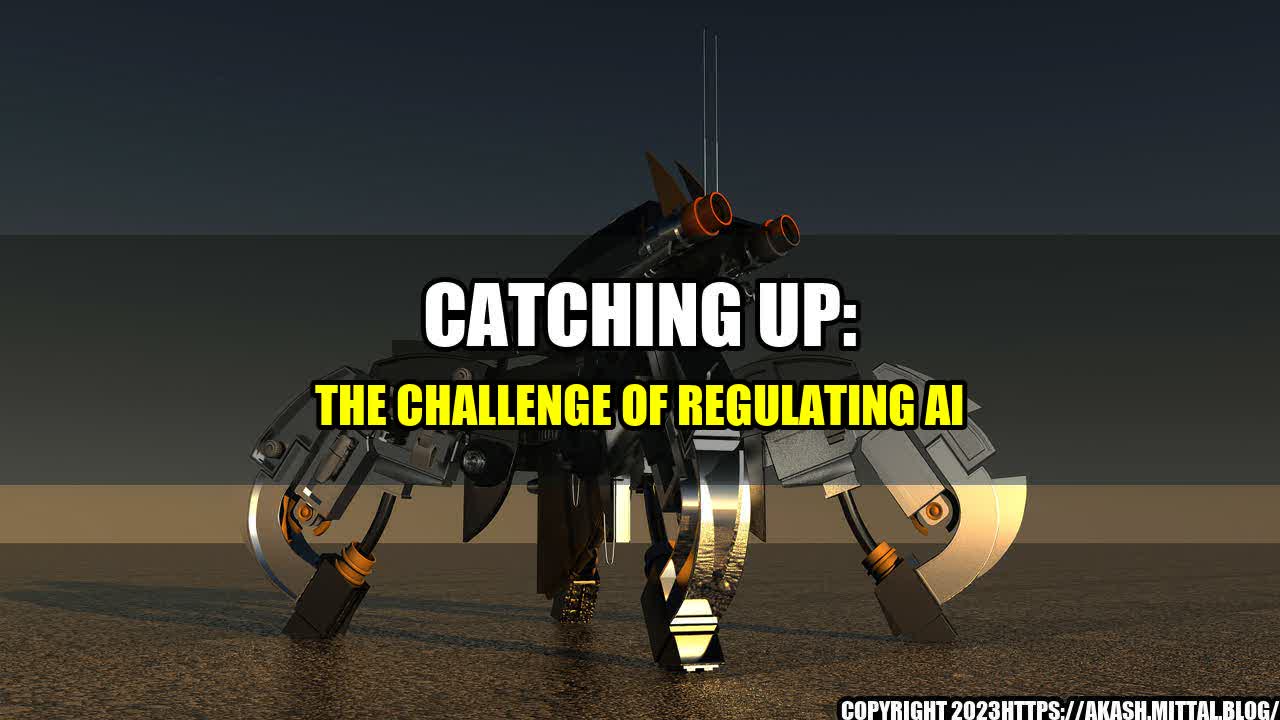Imagine applying for a job and getting rejected because an AI system deemed you unsuitable without any explanation. This scenario happened to a friend of mine who was devastated by the decision. She felt like she was at the mercy of a machine that had no empathy or compassion.
AI systems have the power to make decisions that affect people's lives, from job prospects to healthcare outcomes. That's why it's crucial to regulate AI to ensure that it's used ethically and responsibly. However, Congress has a lot of catching up to do.
The Challenges of Regulating AI
AI technology is advancing at a rapid pace, and laws and regulations are struggling to keep up. Here are some challenges that Congress faces when trying to regulate AI:
- The lack of understanding of AI
- The fast pace of AI development
- The global nature of AI
Many lawmakers don't have a background in technology, let alone AI. They may not fully understand the complexity and impact of AI systems.
New AI applications and use cases emerge every day, making it difficult for regulations to keep up.
AI is not bound by geographic boundaries, making it hard to regulate on a national level. International cooperation and standards are necessary to address this challenge.
Examples of AI Regulation
Despite the challenges, some progress has been made in regulating AI. Here are some examples:
- GDPR
- Algorithmic Accountability Act
- UNESCO Recommendation on AI
The General Data Protection Regulation (GDPR) is a European Union law that governs the collection, use, and storage of personal data of EU citizens. It includes provisions that regulate AI systems and their impact on individuals' right to privacy.
The Algorithmic Accountability Act is a proposal in the U.S. Congress that aims to regulate automated decision-making systems, such as AI algorithms. It mandates companies to audit their algorithms for bias and discrimination, and to disclose how they make decisions.
The United Nations Educational, Scientific and Cultural Organization (UNESCO) has adopted a recommendation on the ethics of artificial intelligence. It sets out guidelines for the development, deployment, and use of AI systems, focusing on ethical and social issues.
Tips for Addressing AI Regulation Challenges
Here are some tips on how to address the challenges of regulating AI:
- Education and Awareness
- Collaboration and Cooperation
- Flexibility and Adaptability
Lawmakers and regulators should receive education and training on AI to understand its potential and limitations. They should also engage with experts, academics, and stakeholders to learn about the impact of AI on society.
A global approach to AI regulation is necessary to address the global nature of AI. This requires cooperation between governments, international organizations, and the private sector to develop common standards and guidelines.
Regulations should be designed to be flexible and adaptable to accommodate for the fast pace of AI development. They should also be reviewed and updated regularly to reflect new AI applications and use cases.
Conclusion
AI regulation is a complex and challenging task, but it's crucial to ensure that AI is used ethically and responsibly. Congress needs to catch up with AI development and use a collaborative and adaptive approach to regulation. By doing so, we can harness the power of AI to improve our lives while minimizing its potential risks.

Curated by Team Akash.Mittal.Blog
Share on Twitter Share on LinkedIn